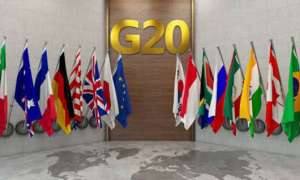
New Delhi
China’s support for India in the G-20 manifesto is a significant factor in the country’s economic and political development. China has supported the New Delhi declaration issued at the G-20 conference, which reaffirms G-20 as a major forum for international economic cooperation.
China had been opposing the direct mention of Russia’s name in the Ukraine war during the talks before the summit. The New Delhi declaration does not take Russia’s name, which has been crucial in creating a consensus on the manifesto. The declaration also emphasizes that the G-20 is a major forum for international economic cooperation, a point that Chinese officials have repeatedly stressed as a criticism of the West.
China’s official news service, Xinhua, commented after the G-20 manifesto, stating that Western countries are trying to bring global political tension into the G-20 as well. In his speech at the G-20, Li Chiang called on all countries to respect each other and emphasize building a common consensus to overcome differences. The Times of India described the Delhi Declaration as historic, as it has strengthened India’s image as a leader of the Global South.
India reached a consensus on more than a hundred issues on the agenda, including the Russia-Ukraine war. G-20 leaders accepted the Delhi Declaration. The Indian Express reported that the Bali declaration had only two paragraphs on the Russia-Ukraine war, while the New Delhi declaration has seven paragraphs and expresses it in detail. After several months of work and five days of tireless efforts, this manifesto could be agreed upon.
The paragraph included in the G-20’s New Delhi Declaration on the Russia-Ukraine war does not criticize Russia or call Russia’s action aggressive. The Indian Express also noted that the Western countries also got what they wanted, with a G-7 diplomat stating that to achieve a language of consensus on a divisive topic like Ukraine, they had to reaffirm what they said in Bali and confirm some prominent points, such as “war to seize one’s territory is unacceptable, the sovereignty and territorial integrity of states must be respected, and that these principles must be respected for a just and lasting peace.”






